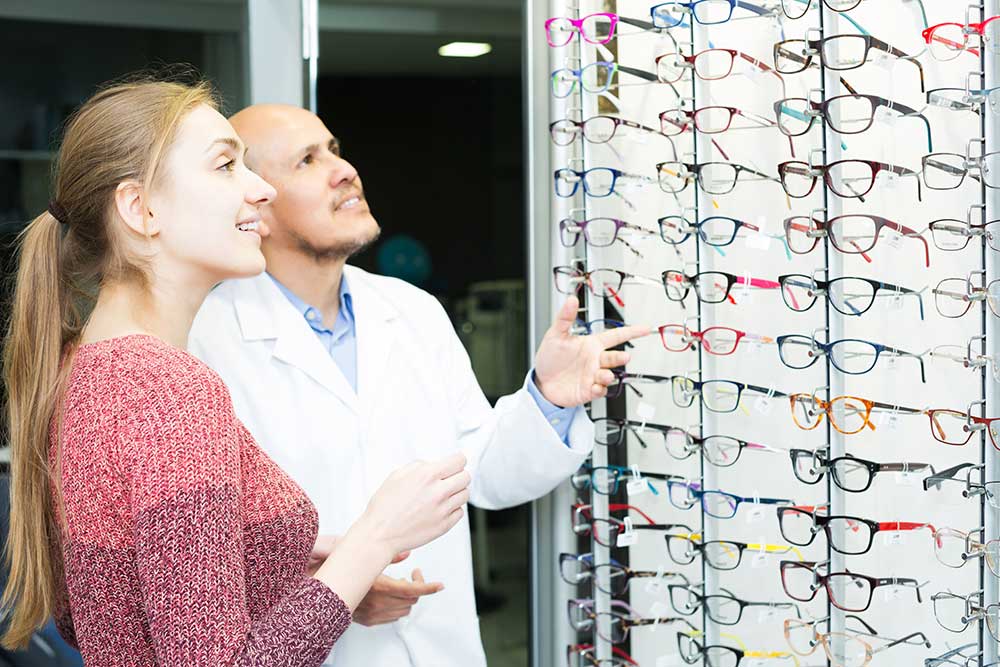Disclaimer: The information on our website is provided for general information purposes only. We make no representations or warranties of any kind, express or implied, about the completeness, accuracy, reliability, suitability or availability with respect to the website or the information contained on our website for any purpose. Any reliance on such information is therefore strictly at your own risk and we are not liable for any damages or losses arising out of or resulting from your reliance on any information contained on our website.
An optician assists people to choose contact lenses and frames for eyeglasses. Additionally, they use the prescription by the optometrist or ophthalmologist to sell the appropriate eyewear.. In fact, they even get to provide advice on the best style of glasses for the customer. These professionals also educator people on in the proper eyewear maintenance and carry out various office tasks. Next, watch a video to learn what an optician does.
How to Become an Optician

An employer would most likely give first consideration to someone that carried an associate’s degree or certificate from a community college that has provided both classroom and clinical experience. These programs have coursework in math, business management, optics, and eye physiology. They are provided with experience in clinical work under supervision and are exposed to the use of optical physics, precision measuring instruments, and optical math. It is possible to enter this occupation with a high school diploma or equivalent and receive on-the-job training.
Half of the U.S. states require opticians to be licensed. Some opticians complete a 2-year apprenticeship. Education programs usually include classroom instruction and clinical experience. Coursework in these programs include math, business management, optics, and eye physiology. Students also acquire skills under supervised clinical work to learn optical physics, optical math, and precision measuring instruments for hands-on experience. Programs may also include distance-learning options.
Job Description of an Optician
Opticians are responsible for following prescriptions given by an optometrist and/or ophthalmologist and helping a customer select the best eyewear or contact lens. This would include measuring the client’s eyes, face, and distance between their pupils.
Opticians need to determine appropriate eyewear in the case of sports needs, work environment, and style preference. He or she prepares work orders for ophthalmic laboratory technicians. They adjust the eyewear to the customer and replace or repair broken eyeglass frames. An optician educates the customer on eyewear, for instance, proper cleaning or contact care. They also have business tasks such as ordering and maintaining inventory, maintaining sales records, and keeping track of customer’s prescriptions. Some dispensing opticians working in smaller shops may cut lenses and insert them into frames.
Opticians are also involved in maintaining inventory, keeping sales records, and precise records of a client’s prescriptions. An optician should be skilled in business, communication, and customer service. They should have dexterity and have decision-making skills as well. They work in a variety of places such as physician’s offices, stores, or larger retail establishments typically on a full-time basis.
Optician Career Video Transcript
Well-fitting, attractive up-to-date glasses or contact lenses give people a new look, and even better, help them see the world more clearly. Opticians help customers choose eyeglass frames or contact lenses, following prescriptions from ophthalmologists and optometrists. After measuring customers’ eyes and faces, opticians create work orders to have the glasses and lenses made when the glasses come in from the manufacturer, opticians adjust them to fit the customer and teach customers how to care for their eyewear.
Opticians working in small shops or preparing custom orders may sometimes cut lenses and prepare frames… many repair broken frames. They also maintain sales records, keep track of customers’ prescriptions, and order inventory. Opticians generally work full time, although part-time schedules are not uncommon. Most opticians work in optometrist offices and in retail stores which may include evening and weekend hours. Opticians typically have a high school diploma or equivalent and receive on-the-job training. Some opticians earn an associate’s degree or a certificate. Many states require licensure.
Article Citations
Bureau of Labor Statistics, U.S. Department of Labor, Occupational Outlook Handbook, Opticians .
National Center for O*NET Development. 29-2081.00. O*NET OnLine.
The career video is in the public domain from the U. S. Department of Labor, Employment and Training Administration.

